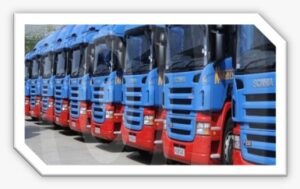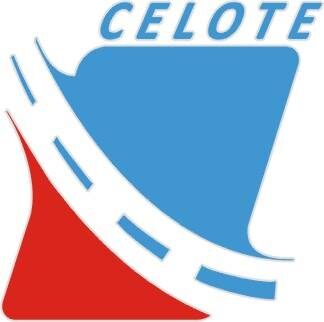INTRODUCTION
The dominant mode of transport for moving people and goods is the road in Nigeria. The mode accounts for over 90% of all land related carriage. The goods generated locally and those imported into Nigeria depends on the road mode of transport for movement and distribution from points of generation to locations of utility. Freight and Fleet planning, coordination, controlling and monitoring from points of origin to delivery locations remain critical to efficient freight and fleet operation and management

The freight and logistics industry in Nigeria have become highly complex to the extent that many transport companies go under after a few months/years or merely operating without breaking even. The situation is so bad that many investors are afraid to venture into the business. Predominantly, freight and logistics of the Nigerian economy run on trucks using trailer-trucks, mini-trucks, vans and encased vehicles.
Operating and managing these motor vehicles in line with laid down regulatory obligations and expectations of the fleet owning companies have always remained a daunting challenge to Fleet Managers. The gamut of activities before the Fleet Manager (FM) are enormous; determining the fleet brand of vehicles to be used, maintaining the fleet, coordinating and controlling the operations, managing people, and relating with all tiers of customers. The FM is expected to understand in-depth the investment profile, carry out financial analysis; determine the cash flow pattern and the rate of return on investment. In all, he is to combine his managerial, operational, technical, technological, financial and human relations skills to ensure the delivery of effective and efficient services at all times.
In order to continuously fit into these challenging roles the FM must not only be competent but also current in practice.
COURSE OBJECTIVES
This course is designed to produce competent people that will efficiently operate and manage the gamut of activities in freight and fleet business so as to guarantee safety and reliability, return on investments, quality service including interest of users, comfort and security.
Section A: ROAD FREIGHT TRANSPORTATION
At the end of this practical training, participants will have the key knowledge and skills in the following areas:
- Types of Freight
- General Goods, Solid & Liquid Goods , Gaseous & Dangerous Goods, Agricultural Products
- Standard Methods of Carriage, Goods Handling, Vehicle Standards
- Loading and Unloading Methods
- Management
- Customer Service
- Managing goods
- Managing the Business
- Vehicle Documents
- Technical
- Vehicle Brand and Selection
- Operation and Maintenance
- Vehicle Replacement Methods
- Safety and Security
Safety (RSTS): Regulatory, Safety, Technical and Soft Skills
- Security
- Vehicle protection from vandalization and theft
- Risk Mitigation
Section B: FLEET OPERATION AND MANAGEMENT
At the end of this practical training, participants will have the key knowledge and skills in the following areas:
- Analysis and application of the regulations and policy underpinning fleet operation and management
- The fleet market and customer management
- Haulage and technical standards appraisal
- Management of people and vehicles for efficient operation
- Tracing, handling faults, and tracking vehicles
- Implementation of safety and security regulations
- Vehicle acquisition and replacement systems
- Identification and management of risk associated with fleet operation
- Analysis of investments and financial issues
- Installation of quality control
TARGET AUDIENCE
Do you desire to become an expert in the field of freight and fleet operation and management; or you are already in this field and want to improve your competence this course is meant for you. Are you operating as a haulage company, a regulator, road traffic control and management agency, or you are charged with the functions connected with freight and fleet operation and management, this course should be of interest to you.
METHODOLOGY
- Paper presentation, simulation/demonstration
- Practitioners intervention
- Interactive session
- Team challenge and general discussion
DURATION: Four (4) Weeks (Intensive)
COURSE FEE: Contact us for details
VENUE: Centre for Logistics and Transport Education (CELOTE) 6A, Adewale Crescent, off Apapa-Oshodi Expressway, Charity (LSDPC) Oshodi Lagos or as may be agreed upon.
DATE: Open for discussion
FACULTY: Experienced scholars and industry practitioners.
For enquiry visit www.celote.org, or call Sandra: 09071376879, Daniel: 09060158655
E-mail: info@celote.org, celotenigeria@gmail.com
